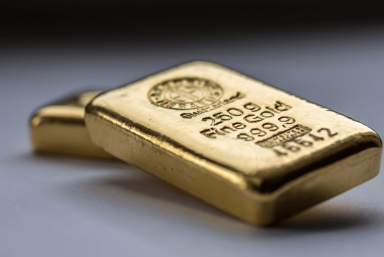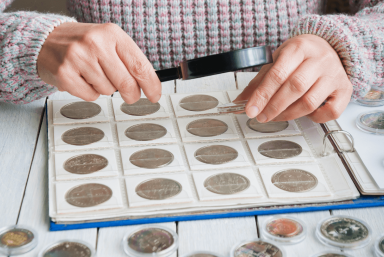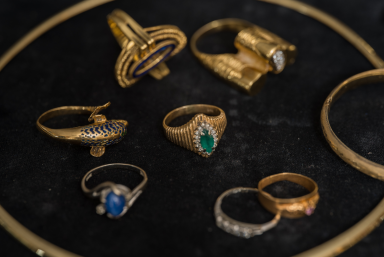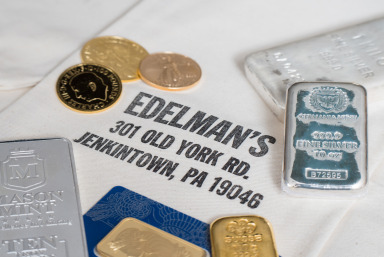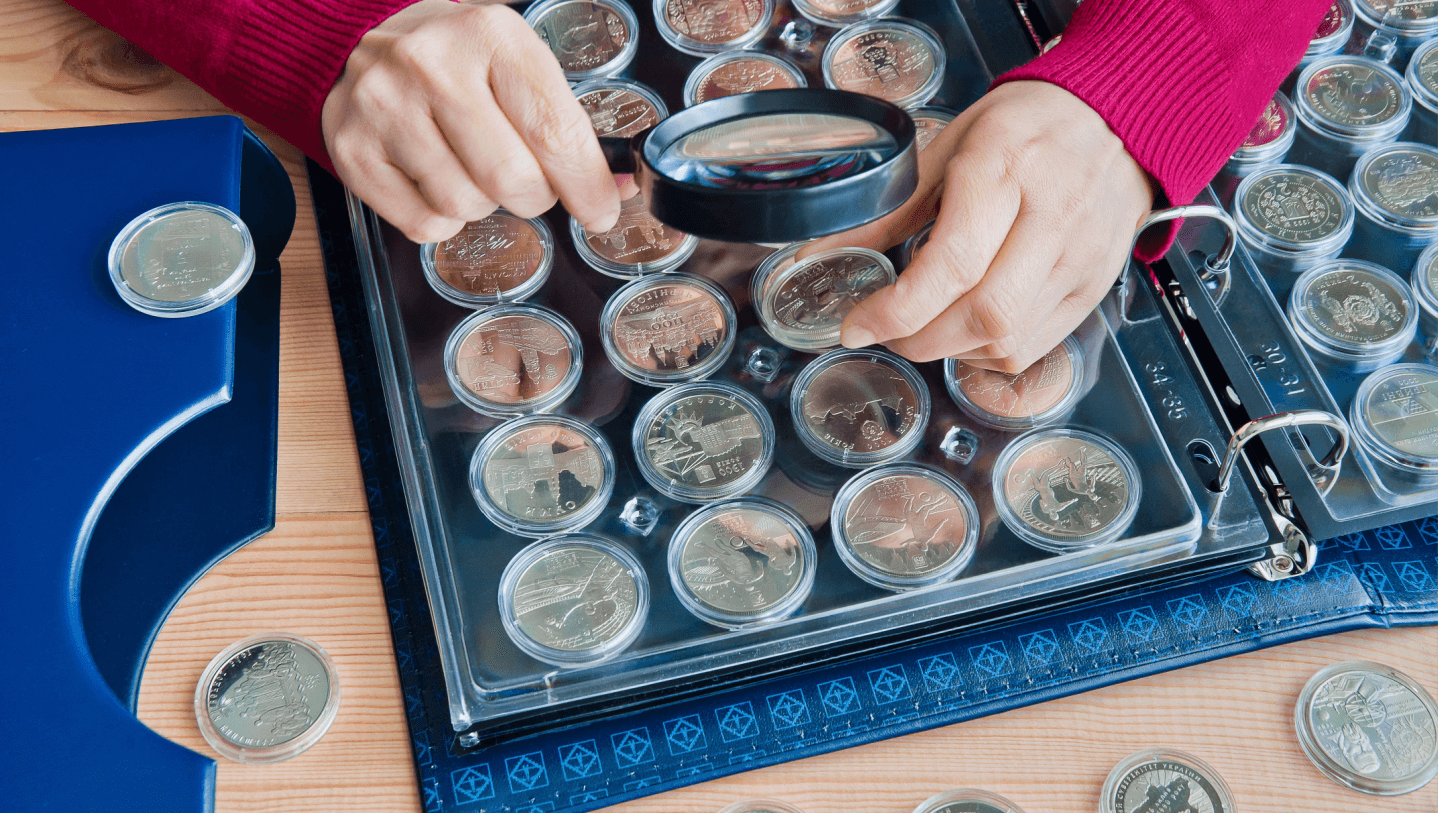
Collecting coins is not just a hobby, it’s an investment that requires proper care and attention. Knowing how to store coins is essential for preserving their condition and value over time. In this blog post, we’ll discuss the best practices for storing coins, including the supplies you should use and things to avoid.
The Importance of Proper Coin Storage
Proper storage can significantly impact the state of preservation of your coins. Factors like humidity, temperature, and physical contact can all lead to damage, tarnishing, or corrosion. Because of these factors, it’s important to understand how to store coins without damaging them, whether you’re just starting out or a seasoned collector.
What NOT to Store Coins In
One of the first steps in learning how to store coins is understanding what not to use. Because coins are a metal, they can adversely react to certain chemicals and materials.
Plastic Bags
While it might seem convenient to store coins in plastic bags, the materials often contain chemicals such as PVC that can react with the metals over time, leading to unattractive discoloration. Is it ok to store coins in plastic bags? The answer is a resounding no; it’s best to avoid them altogether.
Rubber Bands
These can degrade and leave a hard-to-remove sticky residue on the coins, lowering their value and eventually causing irreversible hardness.
Paper Envelopes
Standard paper can cause damage over long periods due to the presence of sulfuric acids in the most commonly used materials. Over time, it may result in exotic colors but left unchecked, it can turn coins black. As such, it is best to avoid it.
What is the Best Method for Storing Coins?
When considering storing coins, you should focus on the materials that will provide the best protection. Here are some of the best methods:
Coin Capsules
These are airtight containers that provide excellent protection against dust and moisture. Although these are expensive relative to other methods, they are a safe and visually attractive options.
Coin Albums
For those collecting by date or preferring a more organized method, albums with spaces for each coin provide a great option. Most name-brand albums are PVC-free and safe for long-term coin storage.
2x2 Cardboard Holders or Plastic Flips
These are individual coin holders ideal for mixed coin collections. Cardboard 2x2 holders allow you to write dates or notes on the front, while plastic flips are a quicker and easier way to store coins. Both provide safe and reliable coin storage options.
How to Store Coins in Bulk
If you have a large collection and don’t want to protect every individual coin, here are some effective best practices for bulk coin storage:
Store in Glass Jars
For bulk storage, a clean glass jar is one of the best containers to store coins. There are no materials in glass that will react with coins.
Group by Material
Keep similar types of coins together, such as all silver coins in one section and all gold coins together. Organizing by date is oftentimes unnecessary, but is still an option if desired.
Label Everything
Use labels to keep track of what’s in each container. For larger collections, organization can be helpful when it comes time to sell.
How to Store Gold Coins and Silver Coins
Storing precious metals like gold and silver requires extra care. To give your coins the best chance, remember these things:
Climate Control
Store your coins in a cool, dry place. Humidity can lead to corrosion and mold on proof and mint set boxes.
Proper Handling
Because these coins have increased value, proper handling is important. Always hold coins by the edges, as putting fingers on them can leave a permanent residue. Oils on our fingers can harm coins, so never rub your fingers directly on the surfaces.
Avoid Scratches
Be aware of friction that can occur when rubbed against plastic or other surfaces. Staples and other sharp objects often cause permanent damage when accidentally coming in contact with coins.
Should I Clean My Coins?
Preservation is key in coin collecting, but one of the biggest mistakes collectors make is attempting to clean coins. This can scratch the surface and leave permanent hairlines on the coins that experts can immediately detect. Never under any circumstances should you attempt to clean a coin, leaving it dirty is ALWAYS the best option. If you are insistent that you want your coins free of any tarnish or toning, reach out to a professional who may be able to properly conserve your coins without harming them, as there are some complicated methods to do so.
What to Do with Your Coin Collection
If you have coins you no longer want or need, consider selling your coins, donating them to a coin club or museum (if they are significant), or giving them to a family member who may enjoy them. If the coins were collected by date, keeping the collection intact may be beneficial instead of removing certain key dates.
Conclusion
Understanding how to store coins properly is an essential part of coin collecting. From avoiding harmful materials to choosing the right storage options, every step plays a role in preserving your collection. By following the tips outlined above, you can ensure that your collection remains safe from hazards that could lower its value. Proper coin storage is not just about keeping your coins safe, it’s always about ensuring that your heirs and those who will receive the coins in the future get the most value possible. Whether you’re storing gold, silver, or other coins, always prioritize their protection to maintain their value and beauty.
Want to learn more about coins or have questions about your collection? Contact Edelman’s today!

